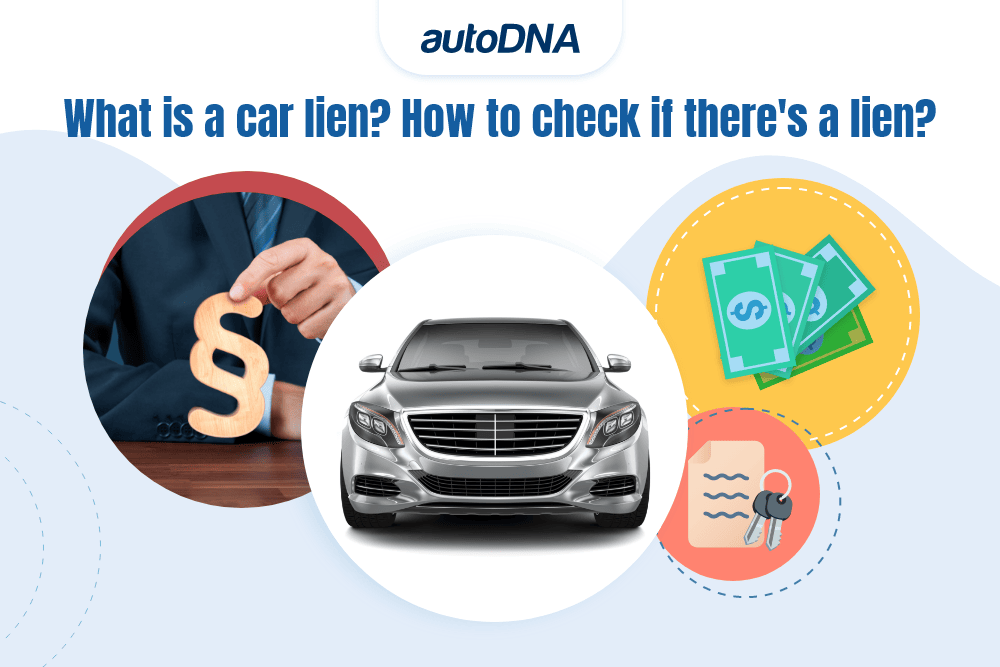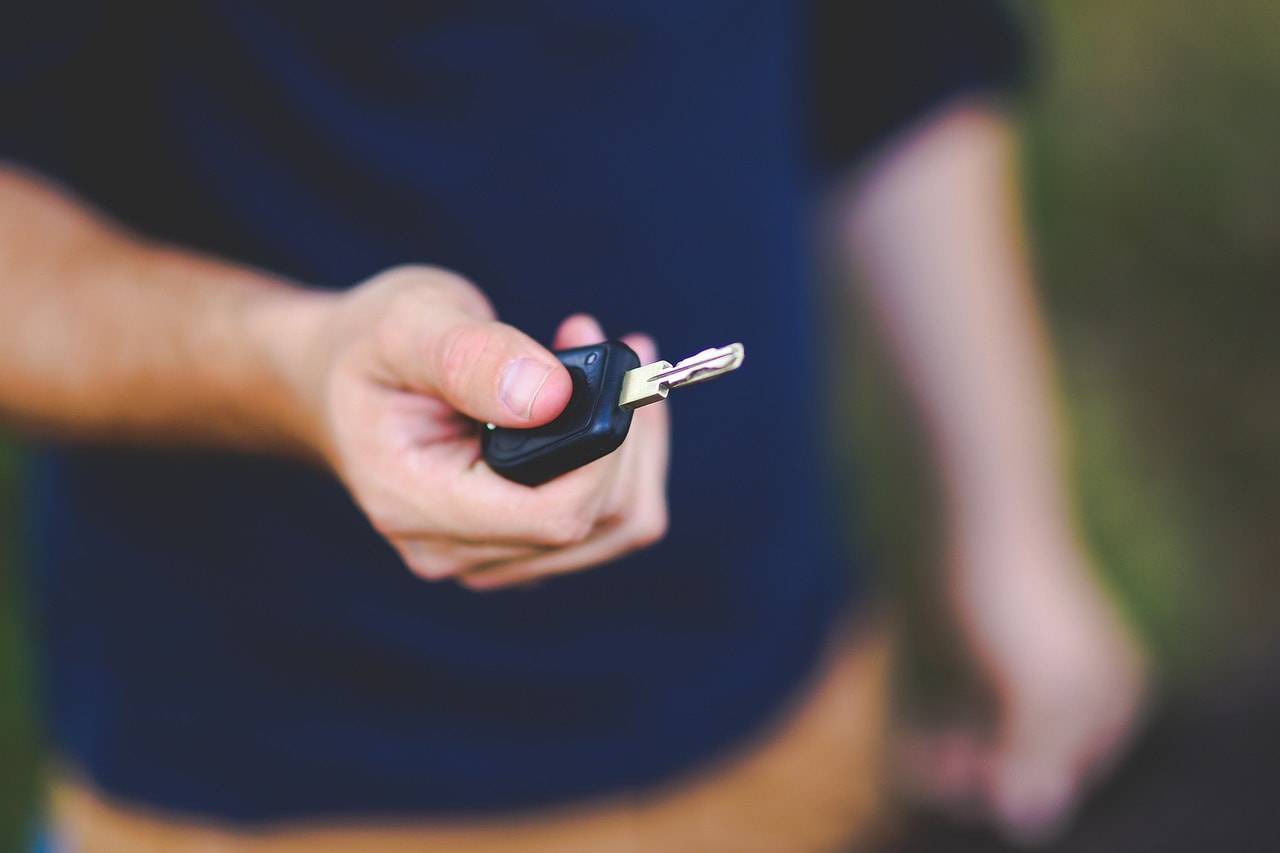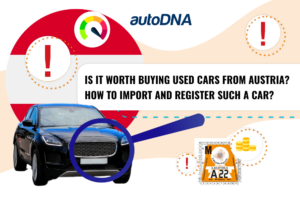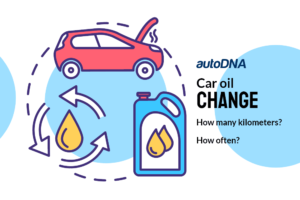
What is a lien on a car? Everything you need to know
Table of Contents
Table of Contents
When buying a used car, the last thing you want is unexpected complications that could turn your dream car into a financial headache. One of the most common hidden issues is a lien on the vehicle. But what is a lien on a car, and how could it affect your purchase? Understanding this key term is essential to making a safe and informed buying decision.

Two people analyze charts, source pixabay.com
Understanding car lien: What you need to know before buying
When purchasing a used motor vehicle, one of the most important steps in the car buying process is checking whether the vehicle has a lien attached to it. So, what is a lien on a car? It’s a legal claim placed on the vehicle by a lender or creditor, often due to a car loan. This claim gives the lender the right to repossess the car if the loan or related debts aren’t fully paid. This typically occurs when the car was purchased through financing, where the buyer agrees to make monthly payments over a specified period. Until the loan is fully paid off, the lender holds the title to the vehicle as collateral. If the borrower fails to meet their monthly payments, the lender has the right to repossess the car. For buyers of used cars, it’s crucial to verify if a lien still exists on the vehicle to avoid potential legal and financial complications. Liens can also result from unpaid mechanic’s fees or legal judgments, making it crucial to verify the vehicle’s history as part of a safe and informed purchase.
For buyers, a lien on a car can cause major complications, especially when trying to transfer ownership. If the lien isn’t cleared before the sale, the lien holder retains legal rights to the vehicle, making it impossible to transfer ownership without resolving the debt.
This situation could lead to legal disputes, unexpected costs, or even the buyer losing the car. Purchasing a vehicle with an outstanding lien is risky, as the lien holder may still repossess the car if the debt remains unpaid.
Here’s what you need to know to avoid these pitfalls:
- How car lien works
Liens are often tied to loans taken out to finance the car. Until the loan is fully repaid, the lender retains a legal interest in the vehicle. This ensures they can recover the owed money if payments stop. - Common reasons for car lien
Aside from loans, there are also involuntary liens, which arise due to unpaid debts, such as unpaid taxes or mechanic’s fees. These liens can complicate a vehicle’s ownership and transfer, making it crucial for buyers to check for any active liens before finalizing a purchase. - Why checking for car lien is crucial
Buying a car with a lien can lead to financial and legal headaches. As the new owner, you could become responsible for settling the debt, even if you were unaware of it at the time of purchase. - How to check for car lien
Use tools like a VIN decoder or a vehicle history report to check for liens. Many online services, such as autoDNA, provide detailed eports that reveal any existing liens or financial claims.
When is a car lien created?

Three people are reviewing documents at the car, source pixabay.com
A lien is created whenever a party, such as a lender or service provider, establishes a legal claim on a car as security for a debt or obligation. This typically occurs in the following situations:
- Financing a car purchase
The most common scenario is when a buyer finances a car through a loan. In this case, the lender places a lien on the vehicle to ensure repayment of the loan. Until the borrower pays off the full amount, the lender retains a legal interest in the car. - Unpaid repairs or services
Mechanics or repair shops can place a lien on a car if the owner fails to pay for services rendered. Known as a “mechanic’s lien,” this allows the service provider to claim the vehicle as collateral until the bill is settled. - Legal judgments
A lien can also be created through court orders. For example, if the car owner loses a lawsuit and the court awards damages to the plaintiff, the plaintiff may file a lien against the car to secure payment. - Unpaid taxes
Government agencies can place a lien on a car for unpaid taxes or fines. This ensures the government can recover what is owed by claiming or selling the vehicle if necessary. - Title loans
Title loans, which are short-term loans using the vehicle title as collateral, automatically create a lien. The lender holds onto the title and can repossess the car if the borrower fails to repay the loan within the agreed terms. - Private sale financing
If a car is sold with seller financing—where the buyer makes payments directly to the seller—the seller may place a lien on the car until the full payment is made.
How a lien on a car can impact your purchase decision?

Man hands car key to another man, source pixabay.com
When buying a car, discovering that it has a lien attached can significantly complicate the process and introduce risks you might not have anticipated. A lien represents a legal claim on the vehicle by a lender or creditor, ensuring repayment of a debt. While it might seem like a minor detail, failing to address an active lien can lead to serious consequences.
First and foremost, purchasing a car with an unresolved lien can result in unexpected financial burdens. If the previous owner hasn’t paid off the associated debt, you, as the new owner, might inherit the obligation. The lienholder, such as a bank or financing company, retains the right to demand payment or, in extreme cases, repossess the vehicle. This could mean paying off someone else’s loan or losing the car entirely, even after completing the purchase.
Additionally, a lien complicates the transfer of ownership.
Since the lienholder holds a legal interest in the vehicle, you may face delays in registering the car in your name.
Some states or countries may not allow the transfer of title until the lien is cleared, leaving you in a legal gray area where you’ve paid for a car you can’t officially own.
Repossession is another significant risk. If the debt associated with the lien isn’t settled, the lienholder has the right to reclaim the vehicle at any time. This is especially problematic if you were unaware of the lien when purchasing the car, as you could lose both the vehicle and the money you paid for it.
Finally, a car with a lien is harder to resell. Prospective buyers are often wary of vehicles with unresolved financial claims, as they don’t want to inherit the associated risks. This can reduce the vehicle’s resale value and make it more challenging to find a willing buyer.
Can a lien be “inherited”?

Man holds car key, source pixabay.com
Yes, a lien can effectively be “inherited” when a vehicle with an active lien is sold to a new owner. This doesn’t mean that the new owner becomes directly responsible for the original debt, but the lien itself—being tied to the vehicle, not the individual—remains in place until it is resolved.
When a lien is placed on a car, it gives the lienholder a legal claim to the vehicle as collateral for a debt. This claim follows the car regardless of who owns it. If the original debtor sells the vehicle without settling the lien, the new owner unknowingly purchases a car with an unresolved financial obligation. In such cases, the lienholder retains the right to enforce the lien, which could include repossessing the car if the debt remains unpaid.
For example, if a buyer purchases a used car from a private seller who hasn’t fully repaid a loan tied to the vehicle, the lien stays with the car. Even if the new buyer was unaware of the lien at the time of purchase, they could face complications such as delayed title transfer, legal disputes, or even repossession.
To avoid “inheriting” a lien, it’s crucial to conduct due diligence before buying a vehicle. This includes checking the car’s history using a detailed vehicle history report from a trusted source, for example, from autoDNA. If a lien is discovered, it should be resolved before completing the purchase. This might involve requiring the seller to pay off the debt or arranging for the lien to be cleared as part of the sale process.
Check the car before buying it – where to look for a notice in the lien register?
- National or Regional Lien Registries
- In many countries, liens on vehicles are recorded in a centralized or regional lien register.
- Look for official state department databases, such as the UCC (Uniform Commercial Code) filings in the United States or similar registries in your country.
- These registers often require the Vehicle Identification Number (VIN) to search for lien details.
- DMV or Local Licensing Office
- Visit your local Department of Motor Vehicles (DMV) or equivalent licensing authority.
- Many DMVs offer lien status checks as part of their title verification services.
- This is a reliable way to confirm whether a lien is recorded on the title.
- Bank or Lender Records
- If the car was financed, the original lender might have a record of the lien.
- You can ask the seller to provide documentation proving the lien has been satisfied.
- Title Documents
- Examine the car’s title for any mention of a lienholder.
- Car title with liens often include the name of the lienholder and indicate whether the lien has been released.
- Mechanic or Repair Shop Liens
- If the car has undergone significant repairs, check with local repair shops for mechanic’s liens.
- These liens may not always appear in national registers but can still affect ownership transfer.
- Private Seller’s Proof
- Request the seller to provide a lien release document if they claim the lien has been paid off.
- This official document from the lender confirms that the debt has been settled and the lien is removed.
- Consult Legal or Vehicle Experts
- If you’re unsure how to navigate lien searches, consider consulting a legal expert or vehicle consultant.
- They can guide you through the process and ensure all records are properly checked.
The car has a lien – should you buy such a vehicle?

Woman hands over car key to couple, source pixabay.com
Discovering a lien on a car is a red flag but doesn’t always mean you should walk away. A lien indicates the vehicle is collateral for unpaid debt, such as an auto loan or repair bill. If unresolved, the lienholder could repossess the car, leaving you without a vehicle or recourse.
Before buying, discuss options with the seller to ensure the lien is cleared before the sale, such as paying off the debt or obtaining a lien release document. If the seller is unwilling or unable to resolve the lien, it’s best to reconsider the purchase.
In some cases, you can work directly with the lienholder to clear the debt as part of the transaction, but ensure all steps are documented. Ultimately, clear ownership is essential, so proceed only if the lien can be resolved properly.
Did you like this article? Anything you’d like to ask in your comment? Feel free to share your feedback and comment at the bottom of the article. And remember – always before buying a car, motorcycle or even a trailer – check vehicle history and free VIN lookup with autoDNA based on the VIN number. VIN check is one of the most important things to do before deciding to buy a used vehicle. Thanks to this, autoDNA helps you make an informed decision.












